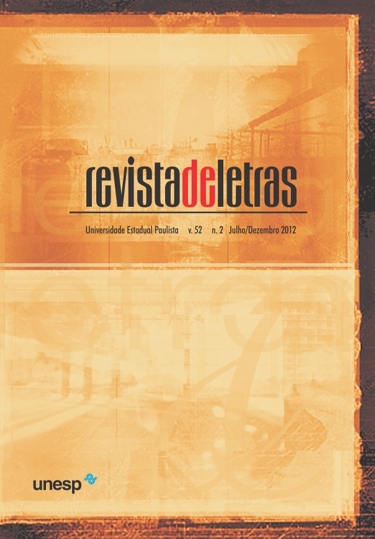Falling Man: literature in search of possible meanings to an empty space
Keywords:
Postmodernism, Terrorism, Literature and History, September 11, Don DeLillo,Abstract
September 11 has originated a wide range of artistic manifestations which have not only searched for plausible explanations for the tragedy, but also tried to review the events. In this sense, this paper aims at showing how a novel reevaluates this episode. The attacks made the United States experience a strong sense of vulnerability, triggering reactions from the American government, whose quick action was translated into a new national security strategy, associated with the war on terror. This paper analyzes the narrative strategies employed by the American author Don DeLillo in his novel Falling Man (2007) in order to reevaluate that tragedy. The debate of the topics is based on texts concerning the relationship between literature and history, postmodern fiction and issues on terrorism. This study contributes to enrich the discussion related to the events that led to the catastrophe and its aftermath, examining characters and groups linked to the September 11 terrorist attacks, revealing multiple truths subjected to social, ideological and historical conditions.Downloads
Published
17/02/2014
Issue
Section
Contributions
License
Os manuscritos aceitos e publicados são de propriedade da Revista de Letras. Os originais deverão ser acompanhados de documentos de transferência de direitos autorais contendo assinatura dos autores.
É vedada a submissão integral ou parcial do manuscrito a qualquer outro periódico.
A responsabilidade do conteúdo dos artigos é exclusiva dos autores.
É vedada a tradução para outro idioma sem a autorização escrita do Editor ouvida a Comissão Editorial.

